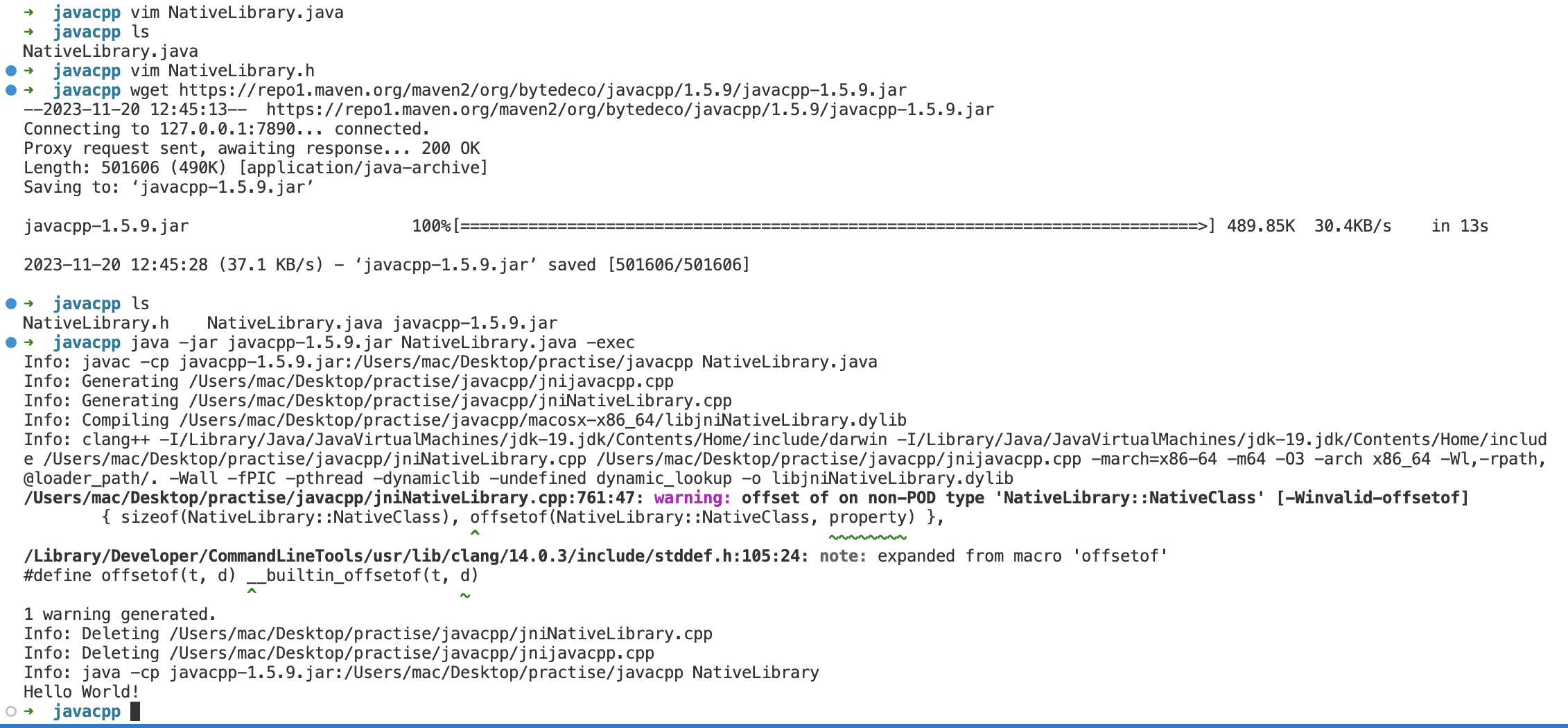JAVACPP
example #
1. 编写NativeLibrary.h #
#include <string>
namespace NativeLibrary {
class NativeClass {
public:
const std::string& get_property() { return property; }
void set_property(const std::string& property) { this->property = property; }
std::string property;
};
}
2. 编写NativeLibrary.java #
import org.bytedeco.javacpp.*;
import org.bytedeco.javacpp.annotation.*;
@Platform(include="NativeLibrary.h")
@Namespace("NativeLibrary")
public class NativeLibrary {
public static class NativeClass extends Pointer {
static { Loader.load(); }
public NativeClass() { allocate(); }
private native void allocate();
// to call the getter and setter functions
public native @StdString String get_property(); public native void set_property(String property);
// to access the member variable directly
public native @StdString String property(); public native void property(String property);
}
public static void main(String[] args) {
// Pointer objects allocated in Java get deallocated once they become unreachable,
// but C++ destructors can still be called in a timely fashion with Pointer.deallocate()
NativeClass l = new NativeClass();
l.set_property("Hello World!");
System.out.println(l.property());
}
}
3. 执行 #
$ java -jar javacpp-1.5.9.jar NativeLibrary.java -exec
4. 记录 #

Reference #
comments powered by Disqus